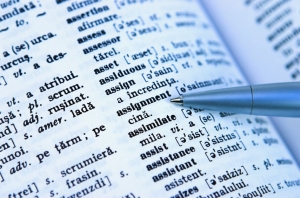You sit down with a new book, ready to relax, but your phone buzzes. A quick glance turns into minutes scrolling through texts and posts. Sound familiar? Slow reading can help calm your mind, ease stress, and sharpen focus – all things that busy days often miss. Taking your time to enjoy each page quietly allows your brain to rest and refresh. Curious how slowing down your reading can improve mindfulness? Keep reading to learn more.
What is slow reading?
Slow reading means taking your time to read carefully, without rushing or checking your phone. It helps you pay close attention to the words, the meaning, and how the story or ideas affect your feelings.
When you read slowly, you fully focus on one thing at a time. Your mind stops jumping from thought to thought and settles down more easily – this can reduce stress and improve mood. For instance, the study at the University of Sussex found that reading for as little as six minutes could lower stress levels by up to 68%. This was found to be more effective than other common relaxation methods tested, such as listening to music or taking a walk.
Slow reading does not mean you need to open a big book every time. Short summaries can also help you practice mindfulness. Summaries give you important ideas from long books in just a few pages. This makes it easier to slow down and fully understand useful information, even if your time is limited.
For example, the “Meditations” summary by Marcus Aurelius, which is available on Headway, gives quick access to thoughts and wisdom from an ancient emperor's writings. The short version helps you take in meaningful lessons on patience, kindness, and self-control without needing hours to finish the whole book.
How slow reading enhances mindfulness?
When you slow down and read, your mind gets a chance to relax. It helps you stay present and notice what's happening right now. You don't rush or think about other things at once. Instead, you let your thoughts rest on one idea or story.
Here's how slow reading helps mindfulness:
- You focus fully on the words and their meaning;
- It calms your mind by limiting distractions;
- Your attention span improves because you practice staying focused;
- It makes noticing details easier, so you better understand ideas in the text;
- You feel relaxed because your heart rate slows down.
Researchers in psychology and neuroscience say reading slowly changes how your brain works. When you read slowly, your brain moves away from quick thinking (where you just skim over details) toward deeper understanding. Scientists call this deep processing. Deep processing helps your memory hold onto information longer because your mind spends more time absorbing it.
Also, slow reading turns on parts of the brain linked to imagination and empathy. Researchers at Emory University discovered that people who took their time to read fiction showed increased activity in brain areas related to feeling empathy for others.
Practical tips to embrace slow reading
Bringing slow reading into your daily life doesn't need much effort. A few small habits can help you pause, focus better, and fully enjoy each page. Check out these easy-to-follow tips.
Create a comfy space
Pick a quiet and cozy spot in your home where you won't be disturbed by noise or screens. Use a comfortable chair, soft lighting, and throw in a blanket or cushions if you like. When your body feels calm and relaxed, your mind also slows down enough to soak up what you're reading;
Schedule regular reading time
Set aside some time each day just for reading. Even fifteen minutes every evening before bed can help calm your mind after a busy day. It's easy to stop scrolling with Headway, as it provides short summaries that take only 10-15 minutes to grasp;
Take notes
Grab a pencil or highlighter and mark parts of the text that speak to you or make you think. Write short notes in the margins about why those parts interest you or how they make you feel. Asking questions or jotting down your thoughts helps you pay close attention and connect with each sentence on the page;
Pause and reflect after chapters
After finishing each chapter, pause for a moment instead of rushing ahead right away. Sit quietly for just two minutes to think about what you've read and let it sink in. You can even write down what stood out to you most or talk about it with someone else later;
Try physical books over screens
Try paper books sometimes instead of digital versions if you often get distracted by notifications on devices. Turning real pages gives your eyes and mind a break from technology, helping you concentrate fully without interruption.
Unplugging: The digital detox
Stepping away from screens gives you quiet moments to recharge your mind. When you put your phone away during reading, you give yourself space to enjoy every word of the story, free from distractions. These screen-free times let your brain slow down, relax, and truly take in what you're reading. Give yourself this break – you deserve it.
Here are some easy tips to help you unplug and fully enjoy this time:
- Turn off your phone or place it in another room to stop notifications.
- Set aside certain times of day as "no-screen zones" just for books.
- Use a paper book instead of digital versions to remove the temptation to click away.
- Let friends or family know you're offline to avoid being disturbed.
- Create a cozy, relaxed spot at home just for quiet reading without gadgets nearby.
By putting down devices, you give yourself space to enjoy reading fully. It helps you reduce stress and feel happier.
Pick up a book and slow down
Slow reading is a simple joy that helps your mind relax and pay better attention. You can take short breaks from screens, focus fully on each word, and get lost in the story. Your stress will drop, you'll remember more, and feel calmer. So grab a comfy spot and a good book – you'll be surprised how much better you feel after even a few quiet pages!






